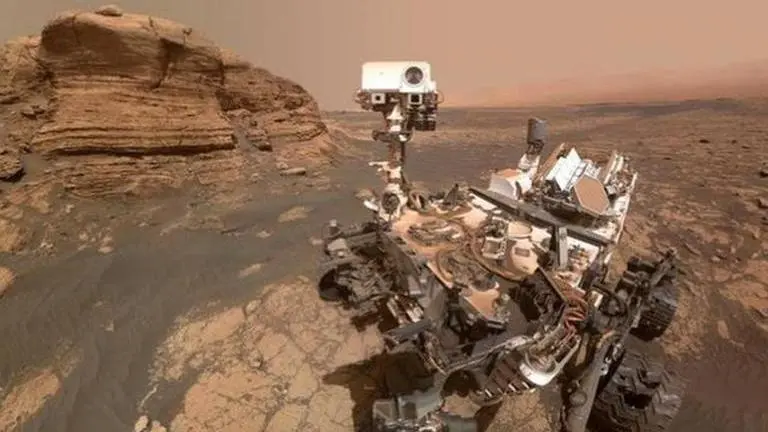Updated 18 March 2023 at 19:41 IST
NASA gets $949 million to retrieve rock & soil samples from Mars by early 2030s
NASA Administrator Bill Nelson hailed the budget allocated for the Mars mission and called it a 'game-changer for scientific discovery.'
- Science News
- 2 min read

NASA has received a budget allocation of $949 million to bring back rock and soil samples from the red planet. This was part of the Biden administration's request seeking $27.2 billion for the firscal year 2024, which is a $1.8 billion or 7% increase from the previous year. NASA Administrator Bill Nelson hailed the allocation for the Mars mission and called it a 'game-changer for scientific discovery.'
"The Biden Administration's budget for NASA is a game-changer for scientific discovery. With $949 million allocated for the Mars Sample Return mission, we'll be able to bring back rock and soil samples from the red planet and expand our understanding of the solar system," Nelson tweeted.
The Biden Administration's budget for @NASA is a game-changer for scientific discovery. With $949 million allocated for the Mars Sample Return mission, we'll be able to bring back rock and soil samples from the red planet and expand our understanding of the solar system.
— Bill Nelson (@SenBillNelson) March 17, 2023
The allocated amount will be spent by NASA on its Mars Sample Return Campaign which it is developing jointly with the European Space Agency (ESA). Under this campaign, the agencies have planned to bring back samples collected by the Perseverance rover to Earth by 2033. According to the plan released last year, this Mars mission will commence in 2027 with the launch of an orbiter to the red planet. The said budget amount would also support NASA's collaboration with the ESA for the latter's ExoMars mission which had Russia as a partner prior to the Ukraine crisis.
Artemis program gets $8.1 billion
The ambitious Artemis program which will see astronauts return to the Moon and establish lunar bases has been allocated $8.1 billion, according to the White House budget document. "The Budget fully funds the rockets, crew vehicle, lunar landers, space suits, and other systems needed to fly astronauts around the Moon on the Artemis II mission and then land astronauts— including the first woman, first person of colour, and first astronauts from another nation," the document read.
Advertisement
The Artemis program began on November 16, 2022, with the launch of Artemis 1 and ended successfully on December 12 with the readiness test of the Space Launch System (SLS) rocket and the Orion capsule. The mission teams are now analysing the data collected during the mission and fixing the issues Orion faced while on its way to the Moon.
Published By : Harsh Vardhan
Published On: 18 March 2023 at 19:41 IST
